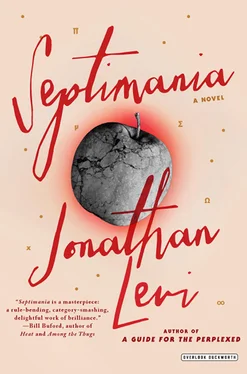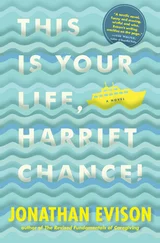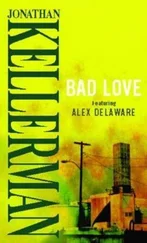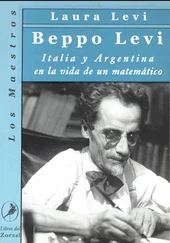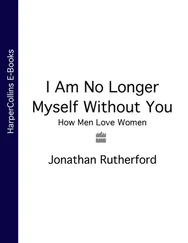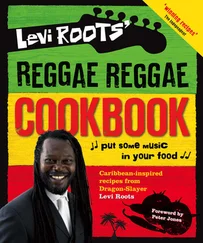“I was eight,” Louiza said, “when I asked my father what was the square root of negative 1. He thought the question was nonsense. Negative numbers he could understand, as years on a timeline, as negative befores in contrast to positive afters. But the square root of negative 1? I might as well have asked him what was the square root of the Magna Carta or a sugar beet. It was my mother who couldn’t be bothered with her own ignorance and asked the maths teacher at school.
‘Louiza, meet i ,’ he said to me. ‘ i , Louiza.’ And after i , the brothers of i , the distant cousins, the family tree of imaginary numbers built around i . Suddenly i became my escape. I found a home in a world peopled with histories and futures and pets dead and alive, a nook in the universe where reading and writing made sense.”
“And that’s what you’re studying for your BA?” Malory asked.
“PhD actually,” Louiza looked down. “Studied. I passed my viva this morning.”
“This morning?” Malory steadied himself with a hand on the rough boards of the roof.
“Would you like to hear my thesis?” Louiza reached up to Malory’s belt and pulled him down into a conspiratorial squat, her cotton hem riding up above a pair of knees that Malory thought might just fit in his mouth.
“Of course,” Malory said, still dizzy at the thought that this young woman — could she even be twenty? — was about to graduate with a PhD and had just happened to climb up the steeple of St. George’s Church, Whistler Abbey, and find him, Malory, who had spent the past ten years avoiding his own doctorate on Sir Isaac Newton with an alternating diet of organs and scones.
“ i = u ”
“I equals you?”
“ i = u. ” Louiza took Malory’s Book of Organs and wrote the formula on a blank page in a sharp, decisive hand. “ i = u ,” she repeated, slowly tracing the letters on Malory’s receptive chest. “In italics .”
“Italics,” Malory repeated in idiotic rapture at the touch of Louiza’s finger on the flannel of his shirt.
“I,” Louiza said, “Louiza. You?”
Malory told her. He told her about his rooms in Great Court next to the chapel; as Organ Scholar of Trinity College — on call from matins to vespers, from baptisms to funerals — proximity to the chapel was essential. He told her about his sitting room, which looked out onto Trinity Street and the apple tree planted in 1966 in honor of the three-hundredth anniversary of Newton’s annus mirabilis , the year the great man ran from the Plague back to his mother’s garden in Lincolnshire and discovered the law of gravity, the nature of light, calculus, and half a dozen other Promethean treasures. He told her about the summer mornings when he would awaken to the desperate cramming of field mice in his rubbish bin and winter mornings when a prism of thawing ice rode the bobsled of gravity from the windowpane to his head. As a graduate student writing a doctoral thesis on the great Sir Isaac, it was foregone and fitting that Newton’s rooms, if not his genius, should come to Malory.
“But you,” Louiza said. “Who are you?”
Malory told her that his own Christian name was Hercule (his mother Sara being French-born) and that the last name on his birth certificate was Emery (being his mother’s alone). “But everyone calls me Malory, with one l, ” Malory said to Louiza, whose eyes widened in what Malory could only believe was the usual astonishment. “I know what you’re thinking,” he rushed on. “Malory as in Thomas Malory who wrote about King Arthur and the Knights of the Round Table. You know, Lancelot and Guinevere, Galahad the Pure?”
“No,” Louiza whispered, “it’s not that.” But Malory didn’t hear her message, eager as he was to confess something he’d never told anyone else. That Malory was the name of a father who had never seen his son. That Malory, like the great Sir Isaac, was posthumous at birth, his fisherman of a father having died after failing to judge the proper speed of the Irish ferry on which his mother was arriving to marry him. That was as much as he knew of the old man — the surname, the fatal eagerness with which he’d loved young Sara — and that much he had gleaned from his mother only after it was clear, shortly before his tenth birthday, that she too would be leaving him, and without much more than this one story.
“Malory,” Louiza whispered again and looked at him, Malory thought, as if she were really, really interested in him, his name, his history. And he also thought, hoped, dreaded that Louiza would kiss him — his first kiss, he was ashamed to even think, his first girl. Twenty-six years old and he would finally kiss a girl. Not that he’d been a man’s man. There had always been something too homuncular about him to make him a target of the older boys at King’s College Choir School or later. There had been dozens, millions of times, actually, from childhood through to the present, when he would have gladly cuddled up to anything human: male, female, or child. But there had never been occasion. He had to content himself with pencils, small rocks, horse chestnuts, the edges of worn sweaters that, with their smells and their textures, kindled enough of an image of affection to stave off his hunger. But now, this girl, this Louiza, of imaginary numbers and cats—
“Is this it?” Louiza reached around Malory.
Malory sat for a moment, still waiting for the kiss, still trying to make sense of the brief equation Louiza had traced on his chest and his equally brief confession. And then he focused, with an attempt at equilibrium, on the lightly dusted hand holding an apple pip in front of his face in the slanted light of the steeple. An apple pip. Between two perfect, if nail-bitten, fingers, Louiza was holding an apple pip that she had pried loose from between two slats of the shutters. And although Malory needed ten minutes of chromatic variations on Bach’s “Come Now, O Savior of the Gentiles” to prove that this singular Pip was the demon that had asphyxiated the organ, the demon he had chased from one key to the next, he knew, beyond a doubt, that Louiza — in any of her many possible worlds — could solve all problems without looking.
The kiss, the undressing of flannel shirt and cotton dress, the exploration and all the rest followed with calm, with passion and a sense of musical inevitability. Yet there was so much that was unpredictable in Louiza’s movements, such a matrix of unsuspected jumping-aways and lunging-togethers that it wasn’t until afterwards, with the afternoon sun casting a final five-line shadow on the eastern wall of the steeple, that Malory stopped to wonder why. Why him? Why now? Why here in the steeple of St. George’s Church, Whistler Abbey?
“Your name,” Louiza said. “Malory, your name equals negative 78.” Louiza traced the unitalicized equation on Malory’s unshirted chest. “So does my name, Louiza. Negative 78. I equals you.”
He did the maths. Of course she was correct— m plus a plus l and so on equaled l plus o plus all the gorgeous things that had just happened, that had just happened to him. But being Malory, being a student of Isaac Newton and a tuner of organs with an ear that wouldn’t be satisfied, he had to ask.
“What does it mean, my equation?” Louiza’s cheek was resting on his thigh. Her voice was soft, but it resonated through his body as if she were whispering in his ear. “How can my equation, how can i = u change the world?”
“Yes,” Malory said. “Something like that.”
“The applications,” Louiza began. “The applications are extraordinary. And quite possibly dangerous.”
Читать дальше
